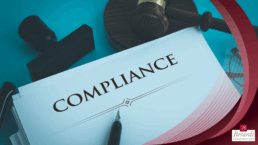In recent months, employers who sponsor foreign nationals for green cards have faced an unexpected risk: lawsuits and federal investigations claiming favoritism toward foreign workers over U.S. workers. What used to seem like a routine immigration process has now become a potential litigation minefield.
Both the Department of Justice (DOJ) and the Equal Employment Opportunity Commission (EEOC) have announced aggressive enforcement against “anti-American” hiring bias, and private lawsuits are on the rise. This means every employer engaging in the PERM labor certification process must revisit their practices to have concrete compliance and minimized risk.
Rosanna Berardi, Esq., Managing Partner of Berardi Immigration Law, stresses:
“PERM compliance isn’t just about following immigration rules anymore, it’s now about protecting your business from discrimination claims. Employers need to approach this process with transparency, fairness, and proper documentation to avoid serious legal consequences.”
How PERM Works and Why It Matters
PERM (Program Electronic Review Management) is the first step in many employment-based green card cases. It requires employers to test the U.S. labor market before sponsoring a foreign worker. The idea is simple: a green card can only be offered if no qualified, available U.S. workers apply for the role.
Key compliance steps include:
- Public recruitment and visibility: Ads must be placed in designated outlets and accessible to U.S. job seekers.
- Neutral job criteria: Job descriptions must reflect the real minimum requirements, not ones tailored to fit foreign employees.
- Good faith recruitment: U.S. applicants must be seriously considered. Employers should document interviews and provide legitimate, non-discriminatory reasons if they reject candidates.
Failure to comply (even unintentionally) can trigger supervised recruitment, debarment, discrimination charges, or even civil lawsuits.
Rise in Private Litigation and Civil Claims
The danger isn’t theoretical. Recent cases have shown juries are willing to punish employers for discriminatory PERM practices.
In October 2024, a California jury found Cognizant Technology Solutions discriminated against non-Indian workers by favoring Indian H-1B holders. Punitive damages were awarded, and the case is now moving into a second phase to determine compensation for more than 2,300 affected employees.
This case sets a precedent for future litigation. Disgruntled workers who believe they were passed over in favor of foreign nationals may see PERM-related lawsuits as a viable path to damages.
Enforcement Agencies Are Stepping Up
It’s not just private litigation, either. Federal agencies are making PERM compliance an enforcement priority.
DOJ Enforcement
The DOJ has already taken action against companies accused of reserving PERM jobs for foreign workers and creating unnecessary hurdles for U.S. applicants. Examples include:
- A tech company settlement of $14.25 million (2021) for limiting PERM roles to foreign applicants.
- Apple’s $25 million settlement (2023) after allegations of hiding PERM jobs and requiring paper resumes.
- A Texas IT company fined $18,000 (2024) for discriminatory PERM recruitment practices.
EEOC Enforcement
In February 2025, the EEOC announced it would interpret national origin protections under Title VII to cover “anti-American bias.” While Title VII doesn’t explicitly ban citizenship discrimination, the EEOC argues that favoring visa holders of certain nationalities over U.S. workers can constitute illegal discrimination.
Industries in the Crosshairs
Certain industries face greater exposure to PERM-related claims due to their reliance on foreign workers:
- Technology & Engineering – heavy H-1B and OPT reliance.
- Life Sciences & Biotech – green card pipelines for international PhDs.
- Higher Education & Research – postdocs and faculty sponsorships.
- Healthcare – international therapists, researchers, and medical graduates.
- Construction & Infrastructure – project engineers and managers.
Employers in these fields should be especially proactive in tightening their compliance processes.
What Employers Should Do About PERM Compliance
Use these practical steps for employers to minimize risk while still sponsoring foreign nationals lawfully:
- Conduct a real, open recruitment process – and document every step thoroughly.
- Avoid job tailoring – requirements should reflect the real minimum qualifications, not mirror an existing employee’s resume.
- Make PERM postings accessible – post jobs the same way you would for any other role. Hidden or hard-to-find ads raise red flags.
- Accept electronic applications – don’t impose paper-only submissions if your company uses digital applications for other roles.
- Train HR and hiring managers – ensure they understand how PERM intersects with anti-discrimination laws.
- Audit past PERM filings – review your records with immigration counsel to spot any potential compliance gaps before they become liabilities.
FAQs on PERM and Discrimination Risks
Why are discrimination claims tied to PERM on the rise?
Workers and enforcement agencies increasingly view PERM as an area where U.S. job seekers are excluded in favor of foreign nationals. Recent high-profile settlements and lawsuits have emboldened both private litigants and regulators to pursue these cases.
Can small and mid-size employers be targeted, or just large corporations?
Any employer can be targeted. While large tech companies have made headlines, the DOJ has fined smaller employers as well. All businesses engaging in PERM recruitment should treat compliance as essential.
How can employers prove they acted in good faith?
Maintain clear documentation of recruitment efforts, interviews, and legitimate reasons for rejecting U.S. applicants. A well-documented file can be the strongest defense if claims arise.
Keep PERM Compliance Top-of-Mind
The landscape for employment-based green card sponsorship is changing. Employers are no longer just navigating immigration requirements, they are now operating under the scrutiny of workers, juries, the DOJ, and the EEOC.
As Rosanna Berardi puts it, “A culture of compliance is the best protection. By treating PERM recruitment with the same care as any other hiring process, and documenting it every step of the way, employers can reduce risks while still meeting their workforce needs.”
At Berardi Immigration Law, we help employers build strong, compliant processes that support both their business goals and their legal obligations. If your company sponsors green cards, now is the time to review your practices and protect your organization from the new wave of litigation risk. Book a consultation today and stay ahead of this, and any new, immigration compliance changes.
Ready to have Berardi on your side?
Whether you’re a business looking to hire or a professional hoping to relocate, immigration law can be complicated. But you don’t have to do it alone. Put our experience to work for you.



